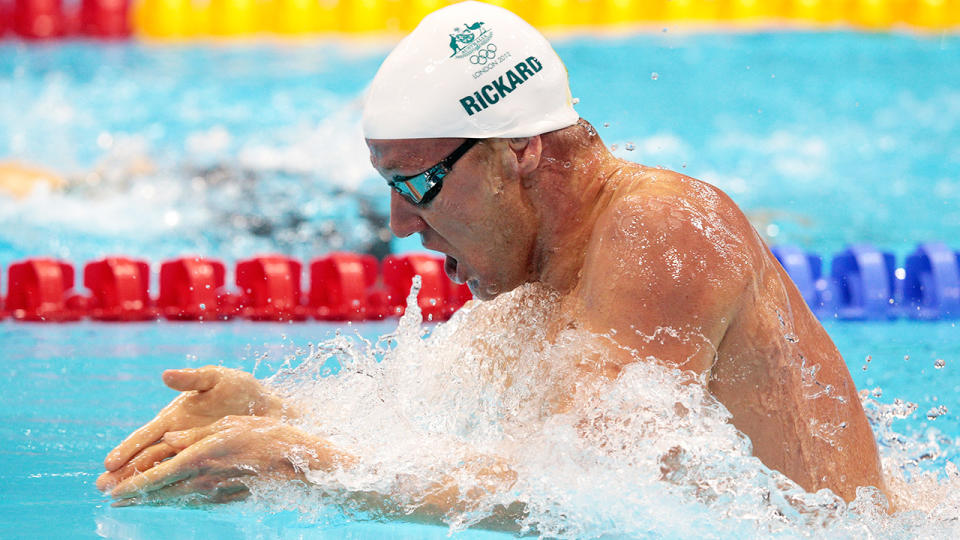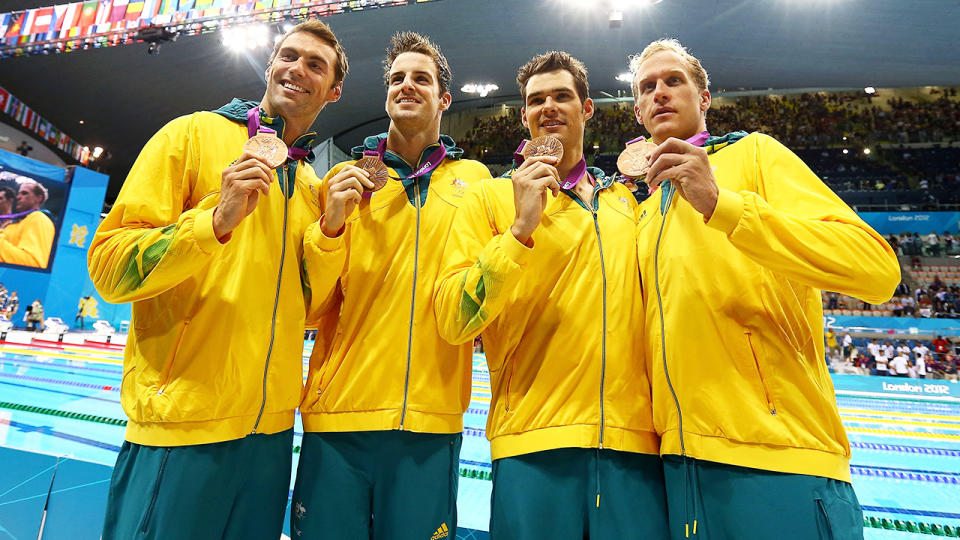'Truly sorry': Olympian Brenton Rickard vows to fight doping 'nightmare'

Australia could be stripped of an Olympic medal for the first time ever after dual Olympian swimmer Brenton Rickard revealed a sample given during the 2012 Olympics had returned a positive test for a banned diuretic.
Rickard was part of Australia’s 4 x 100 metre medley team which won the bronze medal at the London Games.
'LIVING NIGHTMARE': Shayna Jack in TV breakdown over doping scandal
HEARTBREAK: Former Wallabies player dies in Gold Coast beach tragedy
The Sydney Morning Herald reported that 37-year-old revealed his sample, given to anti-doping officials at the Games eight years ago, had been recently re-tested and returned positive for the banned substance Furosemide.
The two-time Olympian revealed the positive test in an email sent to teammates on Friday.
Rickard’s lawyers say the substance, known as a masking agent, had been detected in an “exceedingly small amount”.
If Rickard is found guilty it will be the first time Australia has ever been stripped of a medal over doping violations.
The International Olympic Committee is seeking to disqualify his results from the 2012 Games, Rickard said in his email, a move which would also disqualify his medley relay teammates.
This would strip not only Rickard, who did not swim in the medal race, of his bronze medal but also the likes of James Magnussen, Christian Sprenger, Hayden Stoeckel, Matt Targett and Tommaso D’Orsogna.
The Herald obtained a copy of the email Rickard sent to teammates explaining the situation, in which he apologises for the situation, describing it as his “worst nightmare”.
“I am devastated to inform you that a sample that I provided on August 1, 2012 after the 200m Breaststroke event has been re-tested 8 years later and returned with an exceedingly small concentration of a masking agent, furosemide,” Rickard wrote.

“The re-analysis did not detect the presence of any other prohibited substance that may have a performance-enhancing effect.
“As you know I would never, ever knowingly or deliberately take a banned substance without a TUE.
“It is not acceptable within my own personal values, nor ever acceptable within the culture of our team.
“I have always abhorred doping within the sport so you can imagine how sickened and horrified I am to find myself in this predicament. This is my worst nightmare.”
Brenton Rickard vows to fight IOC doping finding
Rickard, through his lawyers, will argue his case before the Court of Arbitration for Sport this Monday.
They believe any attempt to disqualify the Australian team would be a “grossly unfair and disproportionate” outcome, particularly considering Rickard did not swim in the final of the medley relay.
The three-time Commonwealth Games medallist apologised to his teammates in the email, but said he would argue to prove his innocence at the CAS hearing in Switzerland.
“I am truly sorry to have to inform you of this shocking situation,” he wrote.
“I expect the matter will become public imminently so I wanted to inform you in advance of this and convey to you my strong conviction of my innocence and commitment to protesting the disqualification of the 4 x 100m Medley result.”

The former president of the Australian Swimmers Association, Rickard said the detection of the banned substance was most likely down to his usage of over-the-counter medication prior to being tested.
“You may be aware that diuretics are known contaminants of over-the-counter medications,” Rickard said.
“I believe that this is what has occurred here as I consumed a number of over-the-counter medications in the week prior to test. This explains the exceptionally low concentration (6ng/ml).
“To put it in perspective, the minimum required performance level for the detection of furosemide in 2012 was 250ng/ML.
“Given its high excretion rate, it is implausible that I would have knowingly taken this substance for an improper purpose.”

